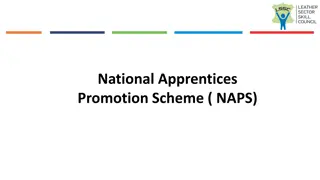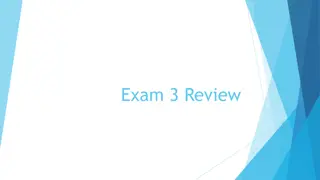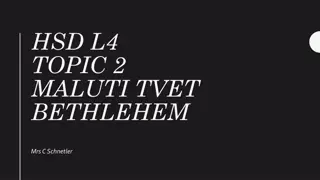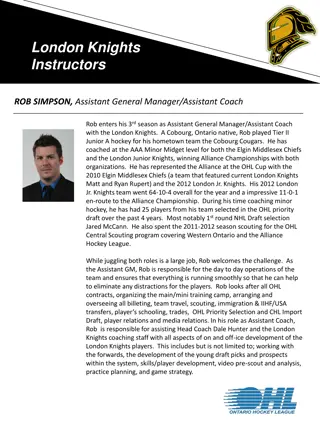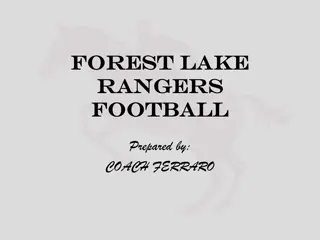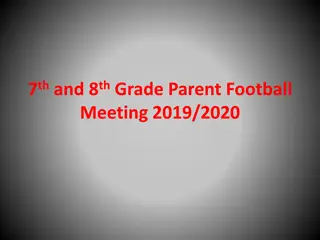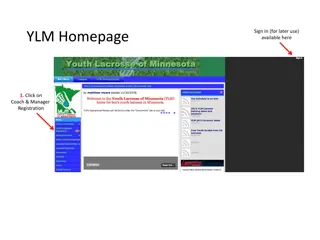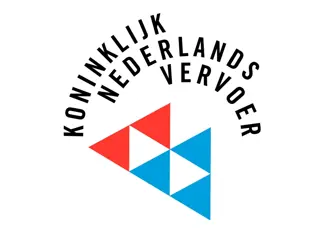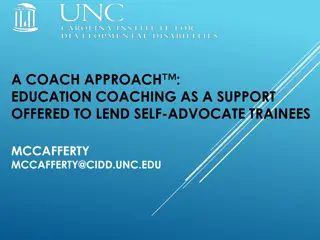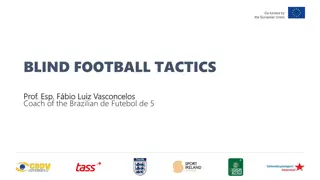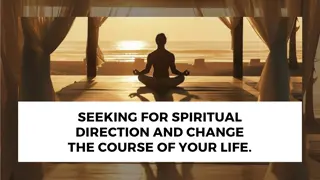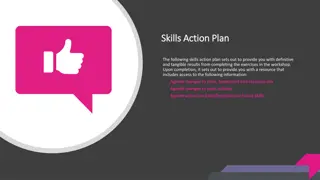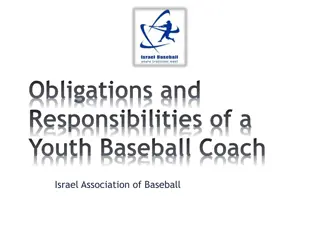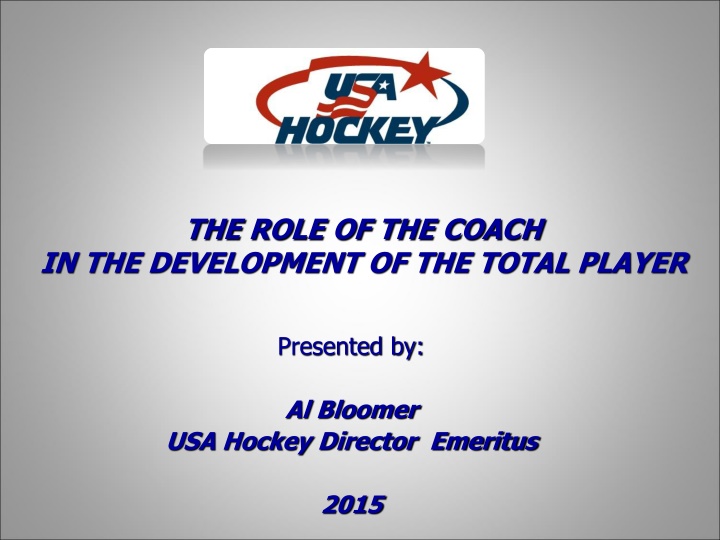
Role of the Coach in Developing Total Players: Insights from Experts
Gain valuable insights into the essential role of a coach in developing total players in hockey, as shared by renowned experts like Al Bloomer and Lou Vairo. Explore the importance of coaching philosophy, style, expectations, and long-term goals, along with the challenges and strategies involved in player development. Discover the impact of continual learning and the shaping factors behind coaching philosophies in this comprehensive discussion.
Download Presentation

Please find below an Image/Link to download the presentation.
The content on the website is provided AS IS for your information and personal use only. It may not be sold, licensed, or shared on other websites without obtaining consent from the author. If you encounter any issues during the download, it is possible that the publisher has removed the file from their server.
You are allowed to download the files provided on this website for personal or commercial use, subject to the condition that they are used lawfully. All files are the property of their respective owners.
The content on the website is provided AS IS for your information and personal use only. It may not be sold, licensed, or shared on other websites without obtaining consent from the author.
E N D
Presentation Transcript
THE ROLE OF THE COACH IN THE DEVELOPMENT OF THE TOTAL PLAYER Presented by: Al Bloomer USA Hockey Director Emeritus 2015
Lou Vairo A Tradition of Excellence
What is your why? Why do you want to be a hockey coach? Why do you coach this age classification? What is your coaching Philosophy? What is your coaching style? What are your expectations?? What are your long & short term goals? When things are not going well, remind yourself of your WHY.
Development Definition Bring out natural talents Eliciting hidden skills / potential Long term commitment Player, Team, Coach Impact / Influence of Style of Play Comfort Zone target the struggle Struggle is not an option Players are visual learners they become clever through their mistakes.
When a coach stops learning and developing, he begins moving backwards Scotty Bowman
Challenges Coaching Philosophy / Expectations / Objectives The foundations of leadership Parent Issues communicating expectations, strategies & discipline Player attitude purpose - expectations Community expectations / politics Team Building creating and maintaining a foundation for success Teaching Technical Skills - progressions Teaching Tactical Concepts age appropriate
Katey Stone USA Womens National Team Coaching Philosophy
What Shapes Your Coaching Philosophy? Core values Personal experiences Systemic / community expectations Level of play athletes available Time available
CHARACTERISTICS OF SUCCESSFUL COACHES Serious Dedicated Creative Passion Ethical - Reputable Take Responsibility Expanded Roles Politically Aware Have a Mentor(s) Life Long Learners Professional in Manner and Behavior Have Fun
Coachs Role Give players the opportunity to achieve goals and reach expectations. Be a positive example. Hold players accountable, development is up to the player. Talent may not be the determining factor, grit, perseverance, willingness to learn are keys. Give players your best effort.
Coaching From the Inside Out You must love the process, love the grind. Embrace the challenge of making your players better. If you measure your success or effectiveness by wins it is time to re- evaluate. If winning becomes a relief it is time to step back and re-evaluate.
If your players are not learning and improving. It may be time to evaluate your teaching methods and modify your approach to better fit with the way the players learn.
Methods Impact Player Development Flexible vs. Consistent Skill Circuits Players decisions Situations becomes the teacher Learn by doing Activity teaches Walk Bottom Up method Early Success False environment in practice Top Down Method Long Term Success Conceptual Competitive Decision making Variable
The best teacher / coach is one who makes himself progressively unnecessary Thom Caruthers
It is not your job to be liked by your players, your job is to like them Your players will not care what you know, until they know how much you care
The coach should be the most prepared person at practice. The coach must be the most disciplined person at games.
Whats Important? Training, Training, Training! Practice Habits and Being Coachable Passion & Purpose Mental Toughness & Discipline Rest-Nutrition-Recovery Respect For The Game and People You are crazy if you think 18 year olds are even near their maturation. Hockey players do not reach full development until they are 26 years old. Dean Lombardi GM L.A. Kings
COMPONENTS IN DEVELOPMENT OF THE COMPLETE PLAYER Competitive Spirit Next play effort Wins 1 vs. 1 battles Play away from puck Functional Intelligence Hockey sense Situational awareness Puck Possession Skills Protection Pass & receive Shooting Speed Recognition Awareness Agility
Suggested Reading Talent Code by Daniel Coyle Sports Gene by Dave Epstein Hard Hat by Jon Gordon Leading With the Heart by Mike Krzyzewski
The habits we develop in becoming good are often the ones that prevent us from becoming great. Tiger Woods
IMPACT OF THE COACH I have come to the frightening conclusion. I am the decisive element on the ice. It is my personal approach that creates the climate. It is my daily mood that makes the weather. As a coach, I possess tremendous power to make a player s life miserable or joyous. I can be the tool of torture or the instrument of inspiration. I can humiliate, humor, hurt or heal. In all situations it is my response that decides whether a crisis will be escalated or de-escalated and a player humanized or de-humanized. Adapted by Al Bloomer from Hiam Ginott
You are given a sheet of ice and players What you see is what you coached.
THANK YOU THANK YOU

